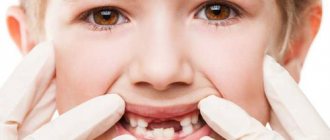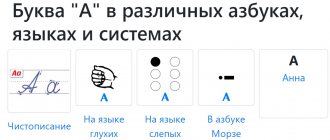Codification of speech disorders according to ICD 10
There are several types of speech disorders. Below they are discussed in more detail.
Clinical symptoms of FGR
The very term GSD (general speech underdevelopment) was once introduced by R. E. Levina. The sooner parents notice signals in a child indicating that the development of his speech does not correspond to age norms, the higher the likelihood that treatment will make it possible to eliminate or reduce minimize the consequences of the violation.
When there is a delay in psycho-speech development (ICD code 10), the following symptoms are identified in children:
- Lack of reaction to the speech of loved ones, observed before the age of 9 months.
- Lack of reaction to changes in the speaker's intonation.
- Lack of attempts to begin basic speech activity (these include characteristic babbling, humming, etc.).
- The desire to build communication with adults using elementary emotional manifestations.
- Lack of onomatopoeia.
- Lack of response to your name.
- Swallowing and chewing disorders.
On a note! Based on the above symptoms, we can draw a conclusion about what the clinical, psychological and pedagogical characteristics of children with speech disorders look like.
Between the ages of one and two years, a child with developmental disabilities does not show or name the objects shown in the picture. He is unable to answer simple questions and does not respond to requests made even by close people. From two to three years old, it is difficult for him to complete tasks that require him to name objects; he cannot perform two or more actions in a row one after another. He also cannot form common sentences, and in more complex cases, even simple phrases.
Speech problems in a child 5 years and older are indicated by the fact that he cannot speak in sentences, using only phrases. He pronounces most of the sounds incorrectly, which often makes it difficult to understand what was said. There is most often no reaction to adults’ calls to themselves; The answers to the questions are extremely simple, monosyllabic.
Specific developmental disorders of speech and language
In general, specific disorders of speech and language development, in particular SPD, are designated in the ICD under the code F80. These include disorders that appear already in the early stages of speech development. And although formally, they are not correlated with sensory deficits, disorders of neurological or speech mechanisms, mental retardation or environmental factors, they are often associated with related problems: deficiencies in reading or writing, pronunciation and spelling of words. Interpersonal relationships, the emotional-volitional and personal spheres also suffer.
Additional facts about ZRR
The first attempts at onomatopoeia in a child begin at the age of approximately 1.5-2 months. He almost doesn’t cry anymore and moves on to the humming stage, when the child does not yet utter sounds as such, but tries to attract the attention of adults with their help.
Important! At first, the baby begins to walk only if he feels comfort, both physical and psychological. He needs parental attention, care, to be fed and dry.
Symptoms of ZPRR
It is possible to diagnose a disorder of psychospeech development as early as 2-3 years of age, while an accurate diagnosis is made at 3-5 years, when the disorders are most evident. Such age norms are related to the fact that by this age the absence of inner speech begins to affect the child’s mental development and the development of thinking and understanding of abstract concepts.
Until two years of age, doctors primarily pay attention to motor development (gross and fine motor skills) and speech development. If the pace lags, the following diagnoses are possible: mental retardation, delayed motor development.
And in the presence of such symptoms as a narrow range of emotional manifestations, fatigue, aggressiveness, etc., doctors can detect PVD syndrome from the age of 2 years. From this same age, an accurate diagnosis can be made, which causes ZPRD.
In addition to the immediate delay in speech development, children with developmental retardation develop concomitant signs such as hyperactivity, aggressiveness or poor emotional response, as well as difficulties in social contacts associated with both behavioral and speech difficulties. Children do not have time to master the school curriculum not because of mental retardation, but due to decreased performance, memory, attention and some thought processes. Despite the fact that speech inhibition is usually associated with thinking disorders, already at school age the reverse process can become active (when mental and cognitive abnormalities appear due to speech disorders).
The syndrome of PVD with autistic features is often recorded, which implies not only problems with speech, but also the following behavioral characteristics:
- the child does not make emotional contact, does not smile, and almost never reaches out to parents and peers;
- there is stereotypical behavior (walking in a circle, rocking in one place, a tendency to sort objects);
- negative reaction to any changes, be it the environment, clothing or usual route;
- using toys and objects according to one’s own logic; attachment to one toy is possible.
- sensory processing disorders;
- increased general and autonomic excitability with sleep disturbances, appetite, and gastrointestinal disorders;
- psychomotor excitability, tics, stuttering;
- protest forms of behavior.
In such situations, it is recommended not only drug treatment of the main pathology, but also psychological adaptation in society. Psychological and pedagogical correction (speech pathologist, speech therapist, psychologist, neuropsychologist) and neurological treatment are required.
Biological and social causes of speech delay in children
The causes of delayed speech development are most often individual, and the process itself depends on a number of external and internal factors. The most obvious reasons that provoke a violation of the development of communication skills can be outlined as follows:
- Infectious diseases suffered by the mother during pregnancy. Poisoning can also be a risk factor.
- Genetic predisposition (some features of the development of the speech apparatus that cause such disorders are transmitted hereditarily).
- Prolonged fetal hypoxia; the birth of a child prematurely, or rapid labor in the mother.
- Poorly developed muscles responsible for pronunciation and formation of sounds (in particular, speech motor muscles, mouth muscles). In some cases, the root cause may be weaning the baby too early.
- Intrauterine or birth injuries.
- Hearing impairment not diagnosed at an early age. Lack of proper correction and treatment.
- Brain injuries of varying severity received by a child in the first year of life.
- Mental illness and other neurodevelopmental disorders.
- Children's lack of communication with their parents, lack of attention on their part. Quite often this leads to underdevelopment of auditory attention and speech hearing.
- Neurology and psychosomatics.
- Unfavorable psychological climate in the family.
Important! Insufficient development of speech in a child can be judged if the vocabulary and sound features do not correspond to conventionally accepted age norms that are relevant for each period of life.
The main stages and conditional norms of speech development in young children
Emotional sensitivity and the ability to regularly communicate with those closest to them lead to the fact that by the fifth or sixth month the child moves from the babbling stage to a new stage - babbling. He gradually learns to pronounce more and more sounds and after a couple of months begins to collect them into syllables. Over time, elementary syllables are connected into chains, and the child learns to pronounce them with different intonations.
This is not speech at all, so the child at this stage does not yet need an interlocutor. He can walk on his own when no one is around. However, it is during this period that it is most important for parents to talk to their child. This will give him the opportunity to use the speech of a loved one as a model and repeat after him.
Important! It is important to teach a child speech during specially organized classes and throughout the day, for example, when changing clothes or feeding, verbally accompanying certain actions. For the successful formation and development of speech, a child must hear the voices of his family all the time - this will provide him with invaluable assistance in mastering speech.
Already by nine months, the stage of verbal babbling begins. The child does not immediately begin to pronounce entire words; at first he will try to simply assemble the syllables into a single whole. And only over time do words begin to become attached to specific people or situations. During this period, parents should carefully monitor how the child’s vocabulary is expanding and how often he learns to pronounce new words.
Complex wording and expressions are best avoided. The baby won’t remember them anyway, and his attention will be overloaded. Concepts denoting the very name of the object, its properties and qualities, for example, colors, shapes, sizes, etc., need to be gradually introduced into his active vocabulary.
It is necessary that the child not only hear speech, but also have the opportunity to observe facial expressions, movements of the lips and face in general. It is advisable to address the child by name as often as possible and play with intonation. Children's songs, rhymes, and nursery rhymes also have a good effect.
Important! An alarming sign for parents should be a “fading” of vocabulary - if it is not replenished before the onset of the second year.
After the child has learned to pronounce individual words, he can be gradually introduced to the pronunciation of short phrases and phrases. They should be simple, understandable and at the same time succinct, contain a description of simple objects, a call to action, etc.
By the age of one and a half years, the baby’s vocabulary already includes 50 words or more. At this time, speech development becomes more intense. The child actively listens and repeats everything he hears around him. And in the third year he already begins to understand grammatical structures and the structure of speech.
At this time, it is extremely important to encourage the child to talk, talk about various events from his life (even in the simplest forms), his experiences, and verbally express requests. Preschool and primary school age is marked by the beginning of the formation of coherent speech.
Diagnosis of speech disorders
If the child’s speech development does not meet age standards, it is advisable for parents to seek help from a professional speech pathologist. He will be able to conduct an examination and explain to parents what the psychology of children with speech disorders is. The examination carried out by a specialist should include the following:
- Assessment of active vocabulary.
- Assessment of the quality of coherent speech.
- Sound quality.
- Quality of fine and articulatory motor skills.
Correction and development work for delayed speech development
Speech problems in children can be prevented through timely prevention of speech disorders.
Speech therapy work
It includes a number of simple and effective activities (games):
- with objects and fingers, aimed at developing fine motor skills;
- on the development of phonemic hearing, auditory perception;
- aimed at developing the prosodic side of speech, that is, voice, diction, breathing;
- to develop the ability for onomatopoeia;
- on the development of the articulatory apparatus.
Prevention of intrauterine developmental disorders
If necessary, parents can also contact the speech development center at the preschool educational institution. Most of them provide a speech therapy class (or, as an option, they have a special group) that allows you to level out the level of speech development and correct mental retardation.
In general, it is worth noting that the Federal State Educational Standard regulates the work of schools and preschool educational institutions, prescribing what exactly the educational standard according to which the institution operates should include, and how the work of a speech therapist is structured with a child entering the preparatory, junior, middle, and senior levels.
Understanding what the psychology of children with speech disorders is like, parents will be able to take timely measures. This will help level out the child’s speech development at an early age.
Classification of dysarthria
Diagnosis of dysarthria of various degrees and localization includes neurological and speech therapy examination, laboratory and instrumental research methods.
A neurologist collects complaints, finds out anamnesis, conducts an examination, checks reflexes, and conducts tests. A preliminary diagnosis requires further confirmation. This may require general laboratory tests, EEG, electromyography, transcranial magnetic stimulation, magnetic resonance imaging, and if it is contraindicated, computed tomography, ultrasound, Doppler ultrasound, etc.
The speech therapist assesses speech disorders, studies the state of the articulation organs, and determines the degree of dysfunction. Diagnostics of both oral and written speech is carried out.
Treatment of dysarthria of varying degrees is carried out not only to correct speech function. Treatment of the underlying disease is also a prerequisite.
If the cause of dysarthria is a hematoma or neoplasm, then a reasonable step would be to consult a neurosurgeon followed by radical surgery.
Strokes require therapy depending on the type: hemorrhagic - hemostatic, ischemic - thrombolytic.
In any case, it is advisable to select an integrated approach with the involvement of a neurologist, speech therapist, physiotherapist, massage therapist, psychologist, neurosurgeon, cardiologist and other necessary specialists.
For maximum effect and to activate the brain, treatment of dysarthria is carried out while taking B vitamins and nootropics.
It is necessary to perform general physical exercises and general body massage. Swimming gives a good effect.
Speech therapy massage (the most effective is probe massage) does an excellent job of eliminating spastic hypertonicity and improving blood supply. Finger massage is used and shows significant results, improves fine motor skills.
Acupressure, acupuncture, medicinal baths, dolphin therapy, isotherapy and others are also used.
Classes with a speech therapist aimed at correcting the condition, improving articulation and fine motor skills; identification of a specific sound defect, its detection and automation; breathing exercises for physiological breathing and speech breathing; correction of pronunciation and expressiveness.
The treatment process is very long and the attitude of the patient and his relatives is of great importance. Therapy should be carried out systematically and comprehensively.
In the case of erased dysarthria and mild impairment, complete elimination of speech defects is possible. In severe cases, only improvement of the pathological condition is achieved.
At the Yusupov Hospital, the coordinated work of a neurologist, speech therapist, massage therapist and other specialists allows us to obtain good results when working with patients with dysarthria. The Yusupov Hospital has all the conditions for a comfortable stay and effective treatment of pathology. During the consultation, you can find out what is dysarthria of 1,2,3 degrees, what are its manifestations, how to diagnose and treat it. Doctors find an individual approach to each patient and develop a program of diagnosis, treatment and rehabilitation. You can sign up for a consultation by phone or online.








